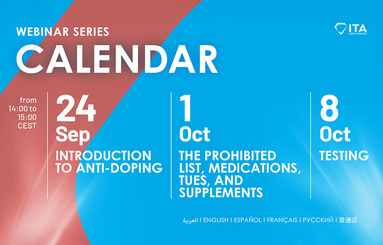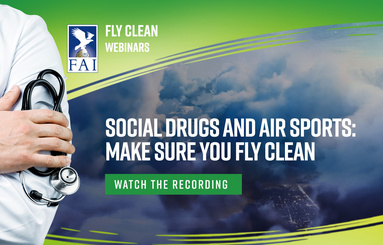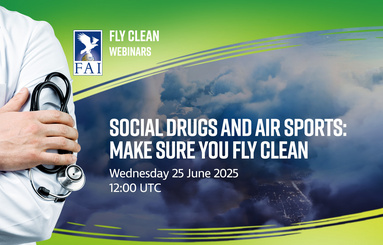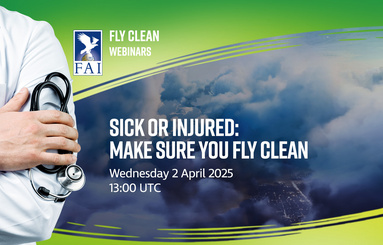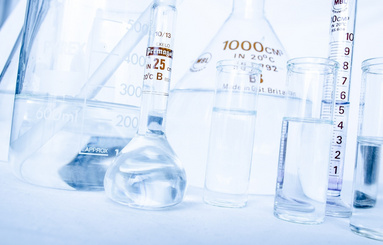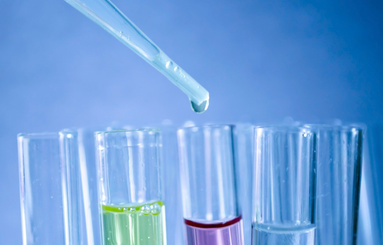
fly clean campaign
The FAI Anti-Doping programme - Fly Clean - seeks to preserve "the spirit of sport", which can be characterised by positive elements such as:
- Ethics, fair play and honesty
- Respect for rules and laws
- Respect for self and other participants
- Dedication and commitment
- Community and solidarity
- Excellence in performance
- Character and education
- Excitement and pleasure
Taking substances in the hope of improving performance, also known as doping, is contrary to the FAI's principles of fair play, and potentially damaging to athletes' health, safety and even results. FAI therefore condemns the use of substances banned by the World Anti-Doping Agency (WADA).
FAI and the World Anti-doping code
On 12 November 2003, the FAI General Conference in Krakow, Poland endorsed the World Anti-Doping Code. In taking this decision the General Conference agreed that FAI, as an International Federation, should comply with the WADA Anti-Doping Code and accepted additional obligations to those required of national bodies and sports agencies. Without this commitment, FAI sports and NACs would no longer receive official Government support and subsidies, or have the right to host FAI World Championships.
Following adoption of the World Anti-Doping Code, the FAI Air Sport General Commission (CASI) approved appropriate changes to the FAI General Section. As such, the FAI Anti-Doping Rules are designed to implement FAI's responsibilities under the World Anti-Doping Code. FAI requires athletes to accept these rules as a condition of their participation in air sports.
anti-doping: testing
Anti-Doping procedures incorporate two core testing methods: In-Competition and Out-of-Competition Tests. The purpose of the testing is to identify those who cheat by trying to illegally improve their performance. Cheating is generally a greater concern in sports where muscle strength and endurance is a major factor to success. However, the analysis of samples conducted by the accredited laboratories is an all-or-nothing process, designed to detect all substances on the WADA Prohibited List* regardless of the sport that the individual athlete practices.
*FAI uses the WADA Prohibited List valid at the moment of testing.
Sanctions
There are no sanctions in force at this time
Need answers?
Check out our dedicated FAQ sections!
The information on this website is intended as an abbreviated guide. The complete FAI Anti-Doping Rules and Procedures are available via the link below.
If you need further infomation, please contact the FAI Headquarters.
additional information
- Dedicated FAI webpage on useful information
- Anti Doping at a glance
Download PDF: Anti Doping at a glance - World Anti-Doping Agency (WADA website)
- 210903 fai privacy notice
Download PDF: 210903 fai privacy notice


